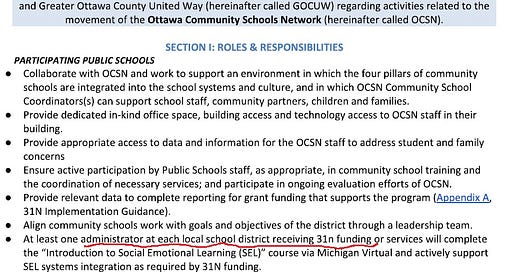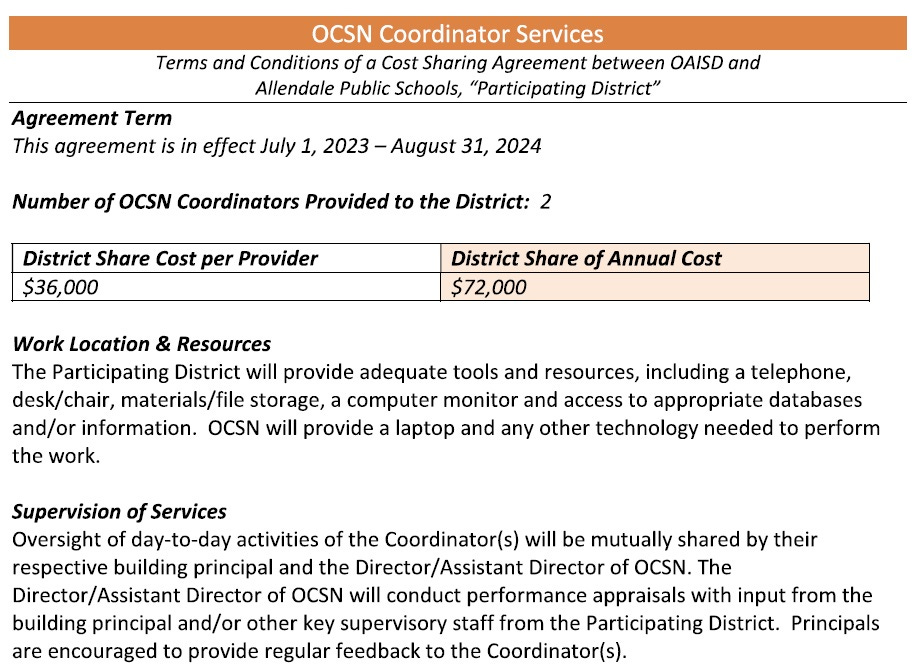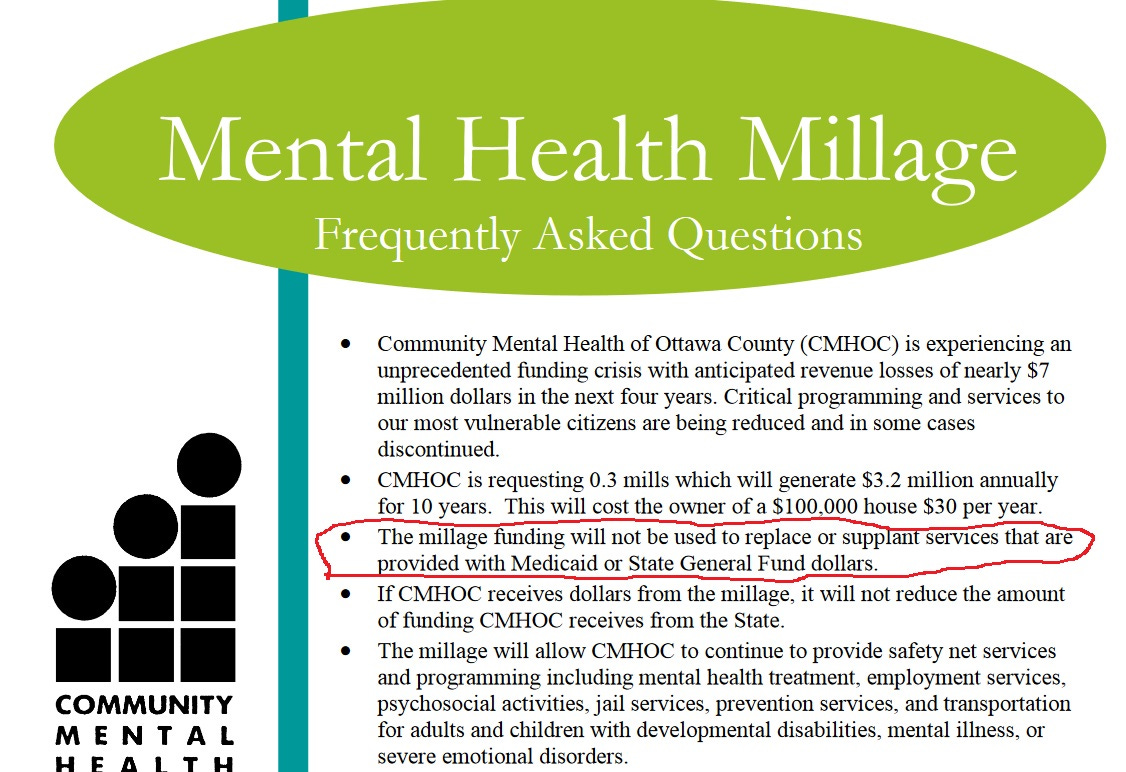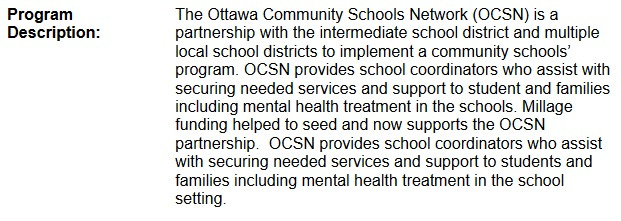The Ottawa Community School Network (OCSN) is constructed with two different types of employees, each working for different organizations with separate funding streams. Funding is provided through the mental health millage, the Medicaid 31N program, and directly from school districts. OCSN a community stakeholder that has learned to work with government entities, businesses, and non-profits to build its impact. OCSN itself is not a business, non-profit, or government entity. It is an invisible entity with little accountability, but increasing influence within the school system. The mixed funding and employers of this program is not only confusing to members of the public, but also to the community mental health (CMH) board and the former executive director who created and provided some oversight for the program.
OCSN School Coordinators work for the United Way and are paid with 31N Medicaid money reimbursed through the intermediate school districts, as well as with funding directly from the school districts.
This sample OCSN School Coordinator service agreement for Allendale Public Schools shows how the district funds one-half of the expense.
The OCSN Director works for the Ottawa Area Intermediate School District (OAISD) and is funded by the mental health millage. This is important because mental health millage money cannot be used to supplement services covered by Medicaid, and 31N legislative funds used to fund the coordinators is Medicaid money specifically designated for mental health services provided in support of students, that must be reimbursed through an intermediate school district (ISD). Funding one program with a combination of Medicaid money and mental health millage money that cannot be used to supplement Medicaid services is a potential conflict.
During the December 18, 2023, CMH meeting, CMH Executive Director Lynne Doyle provided some background and information on the program. (2:50:50) “OCSN was started in 2017. It was a private project between CMH, the OAISD, and several schools.” Additionally, Doyle stated, (2:56:30) “Millage funding is specifically spent on helping to offset the cost of the school coordinators in the schools. The bulk of that cost is covered by the individual schools.” If this statement is true, it indicates mental health millage money is being used to supplement Medicaid services.
Paperwork provided in the November 27, 2023, CMH board meeting packet stated, “OCSN provides school coordinators who assist with securing needed services and support to student and families including mental health treatment in schools.” Paperwork that was provided in the January 16, 2024, Ottawa County Board of Commissioners packet contained a description of the OCSN program. (Note: The topic of OCSN was subsequently removed from the agenda, so this is no longer in the packet.) Neither the description, nor the accompanying paperwork specifically indicated which services would be covered by the mental health millage contribution to OCSN.
During the December 18, 2023, CMH meeting, board members began asking questions regarding program funding and supervision. (3:00:05) Board member Steven Rockman asked, “I’m looking at the job description for a community school coordinator, and it says the employer of record is the Greater Ottawa County United Way. Is that who the coordinator is responsible to?” Doyle responded, “The United Way was only working as the fiduciary. They are not running the program. The coordinators are employed, at the moment, through the United Way; the director is employed by the ISD and does all the oversight for those staff.”
Commissioner Cosby asked, “Why are they paid by the United Way?” Doyle responded, “When the OCSN started, there was a desire to hire them outside of the school system.”
The lack of transparency, blended oversight, mixed funding, and confusion among those responsible for approving funding leaves me wondering about the true aim of this program. Research on community schools indicates they are a federally supported initiative that transforms schools from places where children go to learn reading, writing, and math, to places where they can have all of their needs met and learn to become model collectivist citizens.
It is essential that we have more transparency of how our tax money is being spent. The public deserves understanding and a voice in the decision-making process.





